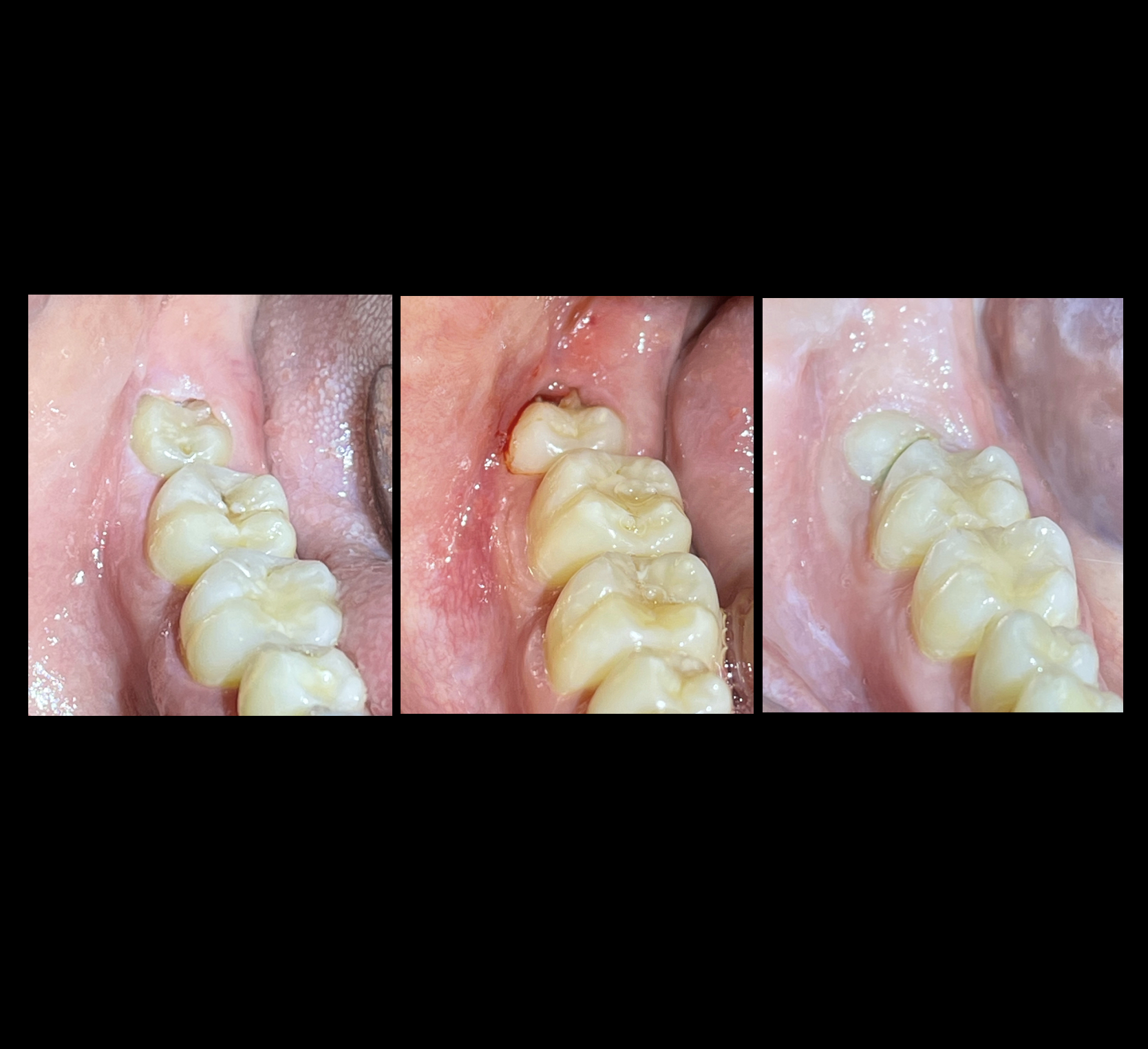there is evidence that wisdom teeth that are difficult to clean can cause periodontal disease in other teeth, and that removal of the wisdom teeth can improve periodontal health elsewhere in the mouth
There are many studies in the Journal of Oral and Maxillofacial Surgery evaluating wisdom teeth’s relationship to periodontal disease more anterior in the mouth. And how the removal of wisdom teeth can reduce indicators of gum disease on other teeth.
One study from 2013 included 69 patients and evaluated the impact of wisdom tooth removal on teeth more anterior in the mouth in patients with mild symptoms of pericoronitis (pain and infection in wisdom teeth).
The patients included in the study had mild symptoms of inflammation and infection around at least 1 mandibular third molar. Patients ages ranged from 20.2 to 25.5 years old. Full mouth perio probing was done at 6 sites per tooth.
A probing depth of 4mm (PD4) or more indicated periodontal pathology (disease).
The distal site of the second molar was evaluated. The proportion of patients with at least 1 PD4 on any distal 2M decreased significantly from 88% before to 46% after removal of wisdom teeth.
Anterior teeth in the mouth were also evaluated (any site anterior to the distal second molar). The percentage of patients with at least 1 PD4 decreased significantly from 61% before to 29% after wisdom tooth removal.
Removal of third molars in patients with mild inflammatory (pericoronitis) symptoms improved the periodontal status of the distal 2nd molar and teeth more anterior in the mouth. The study noted that most patients with mild symptoms of pericoronitis have clinical evidence of early periodontal inflammatory disease, and that periodontal health is improved after third molar removal.
Three examples of wisdom teeth that are difficult to keep clean. All of these required removal. Many studies like the one above show removal of wisdom teeth can improve periodontal status of the remaining teeth.
